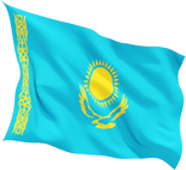In 2016, Uzbekistan embarked on a path of large-scale reform of its economic sphere. Six years later, the country has moved from a closed to an open model.
According to the data of World Bank, Uzbekistan has one of the fastest growing economies in the world. Since 2018, Uzbekistan maintains its sovereign credit rating at BB-. Thanks to reforms the country successfully attracted foreign investments, liberalized the foreign exchange market, reduced, and streamlined taxes.
Uzbekistan is a home for numerous transnational corporations, such as Veon, Nestlé, Samsung, Rieter, and others. There are more than 20 free economic zones across the country that keep on attracting investors into pharmaceuticals, agriculture and various industrial fields.
Moreover, Uzbekistan is taking steps to reduce the direct state participation in the economy and extend opportunities for private sector. In March 2021, the government announced its intend to decrease the number of state-owned enterprises in Uzbekistan by 75% through intensive privatization. This clause has been stipulated in the country’s strategy for 2021-2025.
Growing level of investments, renewal of negotiations on becoming a member of World Trade Organization, liberalization of foreign direct investment (FDI) regulation, and comprehensive reforms illustrate Uzbekistan’s progress.
Available indicators too speak about the country’s growth. 2016 and 2017 market liberalization had a positive impact on the growth of new firms. Their number significantly increased in 2018 (image 1). Meanwhile, the number of firms in liquidation or bankruptcy has decreased. Covid-19 pandemic influenced the performance. (Retail) trade, industry, and agriculture are some of the sectors where firms are created the most.
Image 1. The dynamics of business in Uzbekistan
Note: Data for 2020 and 2021 have been excluded from panel 1 due to the exceptional number of firm exits (business liquidations) that occurred in that year, although in actual terms the number of firms still far exceeded exits; 2013 = 0. Panel 2 shows the change in the number of firms by economic activity, going from left to right in horizontal access based on the magnitude of change between 2014 and 2022; Data for “other industries” have been omitted.
Source: OECD calculations based on data from enterprises in Uzbekistan State Committee of the Republic of Uzbekistan on Statistics, 2023.
Since 2000, the role of small and medium-sized enterprises (SMEs) and private enterprise in the economy has increased. In 2000, SMEs employed 4.5 million workers and SME output accounted for 31% of GDP. By 2021, employment in SMEs had grown to 10.1 million, representing 86% of total employment, and SME output accounted for 54.9% of GDP. However, a growing SME sector does not necessarily equate to private sector development, as many SMEs are essentially state-owned enterprises (SOEs) and the share of truly private firms is difficult to determine from official statistics.
Image 2. SME share of trade, GDP and employment (2000-2021).
Source: OECD calculations based on data from the State Statistics Committee of the Republic of Uzbekistan, 2023.
Yet, small and private business are one of the most important drivers of the economy, increasing employment and income of the population. For the last years Uzbekistan strengthened its legislative framework with the aim to develop and support private business. On June 19, 2017, President of Uzbekistan Shavkat Mirziyoyev signed a decree “On Measures of Radical Improvement of the System of State Protection to Legitimate Business Interests and Further Business Development.” On April 8, 2022 — “On the Next Reforms to Create Conditions for Stable Economic Growth by Improving the Business Environment and Private Sector Development” (Presidential Decree).
The process of business registration — the simplification — has become one of the key reforms. It creates conditions for elevating the entrepreneurship in the country.
Reduction of tax burden on small and medium sized business is another important reform. Entrepreneurs have more means at their disposal for developing their enterprises and attract new investments. But changes are not limited to this. It has become easier to register a business in Uzbekistan. It takes 30 minutes and a minimum set of documents. Small enterprises can receive preferential bank loans with a subsidized rate. The interests of business are protected by institution of the Commissioner for Protection of Rights and Legitimate Interests of Entrepreneurs. Uzbekistan abolished unscheduled inspections of small businesses. The latter are exempted from all types of liability for first-time financial and economic offenses. These are just some of the changes.
Small business is continuing to demonstrate the growth. In January-September 2019, the share of small business in GDP amounted to 57.2% (60.9% in January-September 2018). This decrease is explained by the increase in the share of large enterprises in the GDP structure. With that, in recent years, the share of small businesses has been growing in GDP steadily.
This means that in a year these small firms and enterprises produced goods and services more than a half of a total mass of all sectors (trade, construction, industry, etc.).
By contrast, the share of SMEs in the GDP of developed countries is 50-60%. In Poland – 51%, Germany – 53%, Finland – 60%, Netherlands – 63%.
Overall, in Uzbekistan SMEs play a vital role in the economy, contributing significantly to GDP and employment.
As a result of reforms Uzbekistan ranked 109th — the growth by 8 points — in the Index of economic freedom of the American research institute Heritage Foundation. The country also advanced on measures of tax burden, freedom of investment and trade, but fared worse on government spending and fiscal policy.
Image 3. Uzbekistan’s score in the Index of Economic Freedom, 2016-2023.
Now Uzbekistan intends to fill a number of gaps to further develop the private sector. The country plans to solve the problem of lack of own and borrowed financial resources. Because of it, small enterprises are unable to purchase modern and high-tech equipment. Issues related to land allotment, utility networks are being solved. Obstacles in obtaining long-term loans are being optimized. Uzbekistan is addressing the problems of insufficient development of information systems, marketing, management and logistics services; insurance companies, audit firms, trading houses, consulting offices, business centers, business incubators. Along with that, the country is reducing bureaucracy, training personnel. This all to meet the requirements of the time.
Muhammaddiyor Orzikulov,
Press secretary of the Economic Assembly of Uzbekistan.











